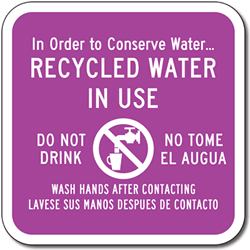 Recycled water has been made freely available and now you’re spending time to drive to a fill station, load it up into your container and take it home. Once there you hook up your pump and hoses and hand water it all over your yard. This all takes a lot of time.
Recycled water has been made freely available and now you’re spending time to drive to a fill station, load it up into your container and take it home. Once there you hook up your pump and hoses and hand water it all over your yard. This all takes a lot of time.
Thinking of a way to be more efficient you might assume that plumbing it to the irrigation system is a genius idea. If only.
Free recycled water may be perfect for use on your lawn, but delivery through your clean drinking water irrigation pipes is not. There are some severe implications with relation to public health and the environment that you need to know first. Endangering public health and the environment could kill these free recycled water programs for everyone.
All Recycled Water Is Not Created Equal
Depending on where you live and where you get recycled water from can determine the quality of the water you receive.
Take for instance the highly purified recycled water from the Silicon Valley Advanced Water Purification Center that claims to be suitable for human consumption. While recycled water created at other treatment plants have been approved for irrigation of pastures and food crops, including landscape irrigation at school grounds, parks and golf courses.
Contamination
Once you’ve decided it’s a good idea to cross-connect recycled water with your clean home irrigation pipes you’re about to enter the danger zone. Be prepared for what’s to come.
For you to be able to connect recycled water to the irrigation system for your house the following requirements must be met.
Your water agency must be notified of your intent and you must get permission from them before connecting.
At a minimum they will require:
- A reduced pressure backflow preventer immediately after the water meter to your house;
- Complete separation of your irrigation system from the domestic water system;
- Cross connection test conducted by a certified backflow/cross connection control specialist;
- Coverage test to ensure that recycled water is applied only in intended areas;
All of this then comes with a yearly testing and fee structure. Dublin San Ramon Services District posted their rate structure online.
With a quick overview – the following will need to be performed:
- Recycled Water Irrigation System Plan Review Fee – $3,865.
- Recycled Water Irrigation System License Fee – $1,090.00
- Recycled Water Irrigation System Inspection Fee – $3,870.
- Backflow Prevention Device Inspection Fee – $260.
- Chlorination/Bacti Test – $715.
Total – $9800
Nearly ten thousand dollars for a properly installed Recycled Water Irrigation system at your house.
See! Much cheaper to just follow directions and setup a hose + lawn sprinkler. 🙂
Real Life Example:
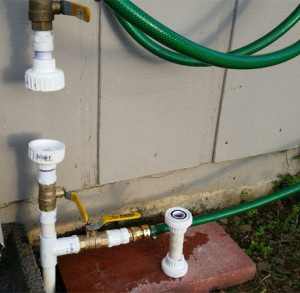 In this picture the municipal water supply is isolated from the irrigation system at the top isolation valve. They have built in an air-gap with unions on both sides, followed by another isolation valve before the hose bib connection is added with the idea that it would be fed from their pump on their tote.
In this picture the municipal water supply is isolated from the irrigation system at the top isolation valve. They have built in an air-gap with unions on both sides, followed by another isolation valve before the hose bib connection is added with the idea that it would be fed from their pump on their tote.
At first glance this would be acceptable but it is not. Here is why:
- Since irrigation pipes are buried, a visual inspection cannot be performed to verify no cross connections between the irrigation lines and the homes drinking water lines.
- Recycled water is regulated water and to ensure public health and safety the California Division of Drinking Water has developed specific requirements regarding its use and application.
I emailed with Principal Engineer supervising Recycled Water and Water Conservation groups at Dublin San Ramon Services District (DSRSD) in order to get her thoughts. Rhodora Biagtan explains:
The minimum set of cross connection control requirements listed above have not been met. The [owner] may potentially contaminate [their] family’s drinking water and neighbors’ drinking water source. The local water agency may have more stringent requirements to ensure protection of the public water distribution system that needs to be adhered to. It is very important that the water service provider knows that [they] are plumbing recycled water into the irrigation system on their property and that [they] meet the potable water providers requirements.
Each wastewater treatment plant that produces recycled water has permit requirements with regulatory agencies such as the Department of Drinking Water and the Regional Board which may impose requirements beyond that of Title 22 and Title 17. Note that once recycled water is flowing into [the] irrigation system, you cannot connect it back to the domestic potable water system without hypochlorinating, flushing and bacteriological testing.
Warning, the disinfection process may cause your landscaping to burn and/or die because highly concentrated hypochlorite (disinfectant) will be sprayed onto the landscaping when flushing your system. Ms. Biagtan said DSRSD has encountered very intelligent people, even professional plumbers, who have tried to do similar and they have found cross-connections and/or contamination.
Shaking in your boots?
This is some serious stuff. You should never plumb recycled water into the irrigation system for your house. This is why you sign your user agreement to only hand-water with recycled water and not hook it up to your irrigation system.
If you have already made the cross connection, whatever you do, don’t plumb it back to your house. The possibility of back feeding and contaminating the pipes inside your house is high.
Moving Forward
If you’ve made the connection already you’re better off to place caps on your irrigation system so you can’t go back to your original setup. Also, know that any irrigation lines in your yard are now considered “contaminated” and can never be hooked up to any potable sources in the future unless you:
- Hypochlorinate the irrigation lines
- Flush all lines with potable water
- Get piping tested for bacteria
If you don’t want to do all that, then when you do decide to go back to irrigation using the municipal water supply, you will need to install a brand new irrigation system. You will need to do this even if you haven’t used the contaminated piping in a while. You don’t know what has been growing inside the pipes during its time frame of no use.
Rainbird has a information that can help you build a non-potable irrigation system that utilizes purple pipes, irrigation valves and other equipment that is necessary. You can buy purple pipe from Ewing Irrigation, they have stores all over the place. Home Depot doesn’t sell purple pipe.
Please be smart, safe and environmentally conscious when using recycled water on your property.
If you have any friends who have plumbed recycled water to their irrigation system, please forward this article to them.

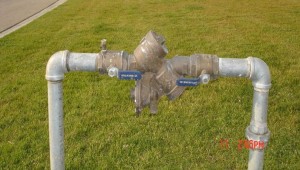
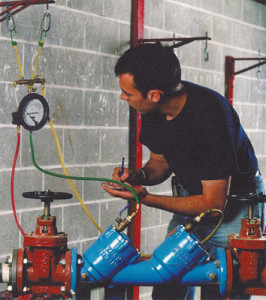
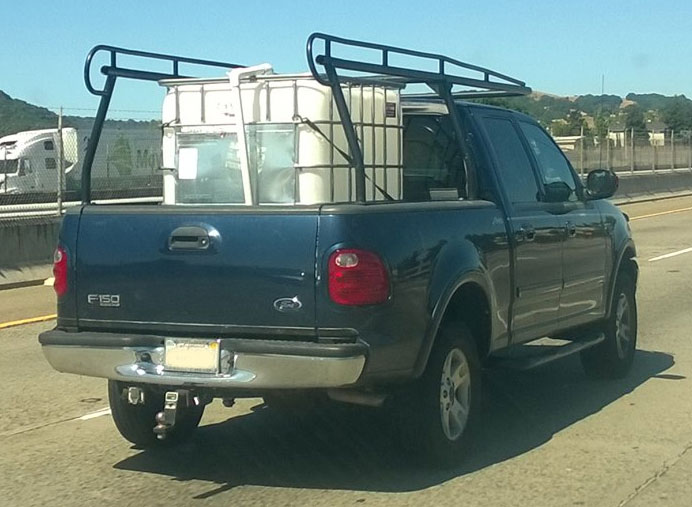
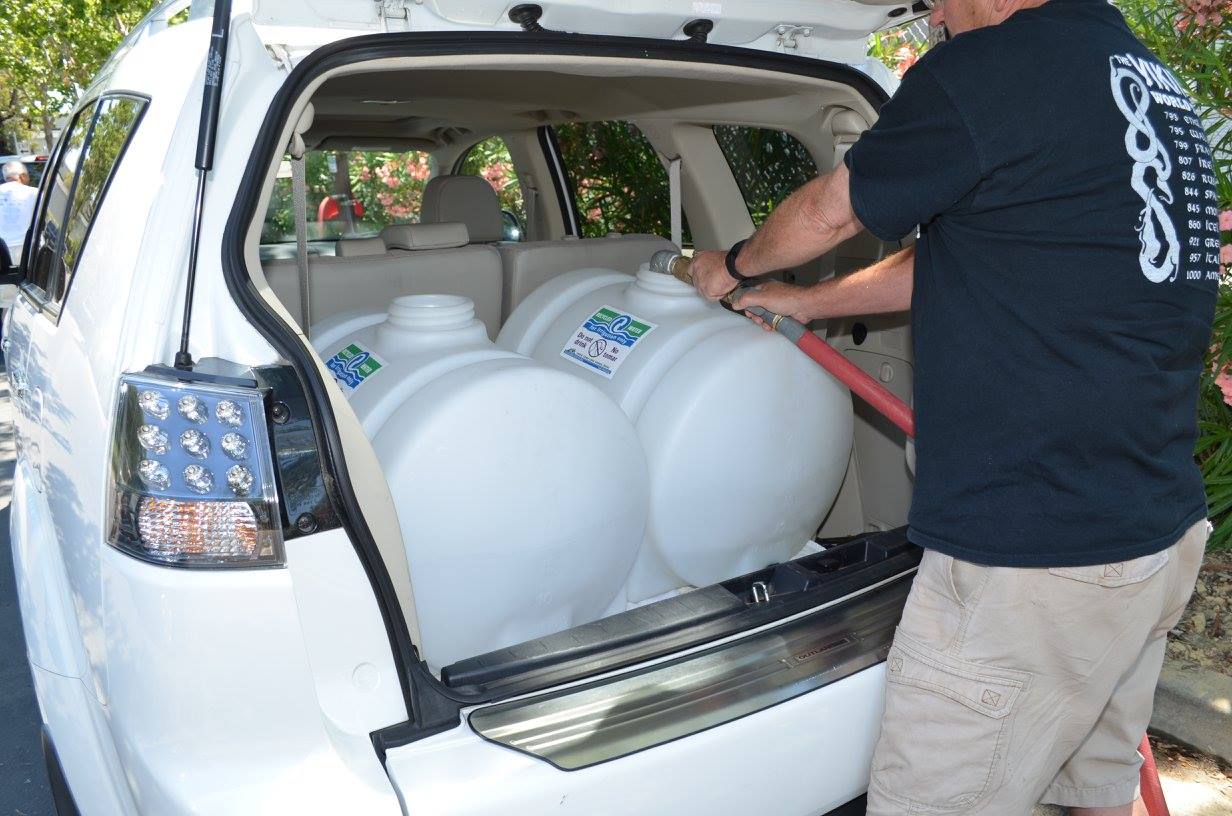
Leave a Reply